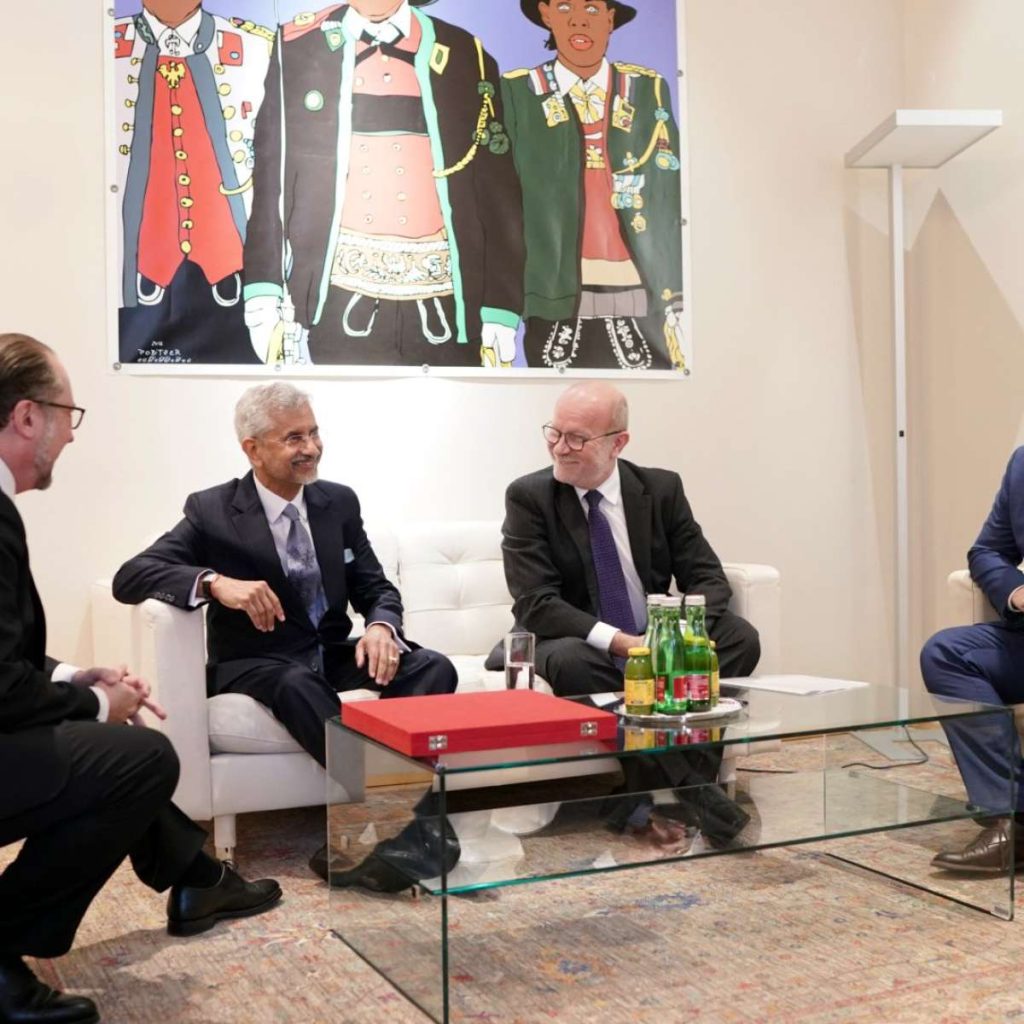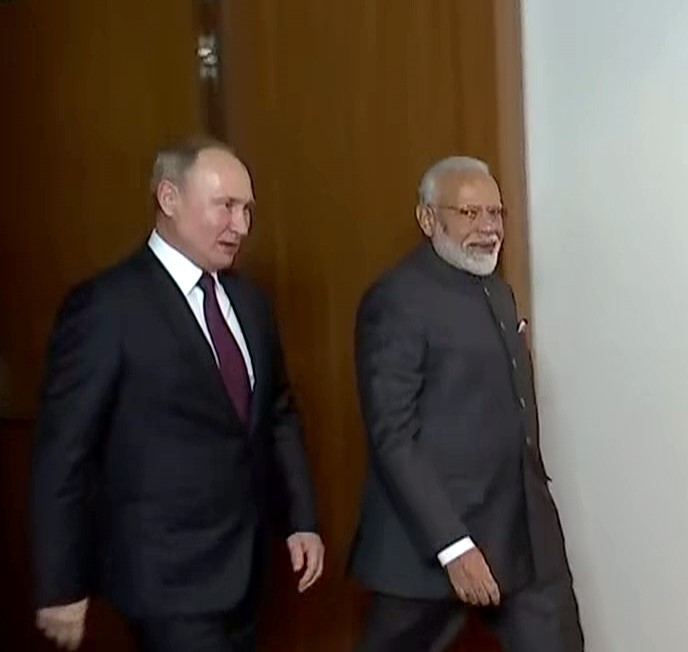Russian president says relying on positive traditions of friendship and mutual respect, the countries continue to develop their special strategic partnership…reports Asian Lite News
The multi-dimensional Russia-India cooperation will continue to strengthen, Russian President Vladimir Putin hoped in a message to President Droupadi Murmu and Prime Minister Narendra Modi on Saturday.
In his messages, Putin stressed that in 2022, Russia and India marked the 75th anniversary of the diplomatic relations and, relying on positive traditions of friendship and mutual respect, the countries continue to develop their special and privileged strategic partnership.
Both countries, he said, continue to carry out large-scale trade and economic projects in addition to energy, military technology and other areas of cooperation, coordinate efforts in addressing important matters of regional and global agendas.
“I am confident that India’s recently started SCO and G20 presidencies will open new opportunities for building multi-dimensional Russia-India cooperation for the benefit of our peoples, in the interests of strengthening stability and security in Asia and the entire world,” said Putin.

‘Ukraine situation needs priority-addressing’
Weighing in on the ongoing military conflict between Russia and Ukraine during a joint press briefing with the Austrian Foreign minister in Vienna, External Affairs Minister S Jaishankar on Monday said India’s position has always been clear, which is for both nations to return to dialogue and diplomacy.
Jaishankar said there were close to 20,000 Indian students studying in Ukraine at the time the conflict broke out and the focus for the MEA in the early weeks of the conflict was get them out of the combat zone. “I have laid out very clearly our position, which is that there has to be a return to dialogue and diplomacy. Now, since the conflict started in February, obviously the immediate pressures and anxieties have changed with the passage of time. In the initial weeks, a lot of that was centered for us around a very large number of Indian students that we had more than 20,000 of them in Ukraine, and how to get them out of the conflict zone,” Jaishankar said at the joint presser.
The External Affairs Minister further added that India strongly advocates negotiations and discussions to end the Russia-Ukraine, recalling Prime Minister Narendra Modi’s recent conversations with the presidents of both countries. “This is not the first conversation he has had. They’ve been talking from time to time,” Jaishankar said, adding that as the Foreign minister, he also held talks with his Russian and Ukrainian counterparts Lavrov and Kuleba on the issue.
In a further statement, Jaishankar said as the Ukraine situation has thrown up specific problems, they also need priority-addressing. He cited the negotiations that preceded the Black Sea Grain Initiative as a case in point.
Concerns over the security of the nuclear power facility in Zaporizhzhia were also raised by Jaishankar during the presser with his Austrian counterpart.
“Now, while the larger goal is being pressed, I think the Ukraine situation also produces specific problems which need priority addressing. One example of that was the negotiations that preceded the Black Sea Grain Initiative. And at that time too, this was mainly led by the Secretary General of the UN and by Turkey. And we had done our bit, including at Bali to be supportive of that and to address some specific concerns which at that time were still open. Another issue that had come up was regarding the safety of the nuclear power plant in Zaporizhzhia. So that too has been a subject where we have tried to do whatever is within our capabilities to create more stability,” Jaishankar said.
Jaishankar will hold a meeting with International Atomic Energy Agency Director-General Rafael Mariano Grossi on Tuesday.
“I will be meeting Mr Grassy tomorrow at IAEA headquarters. So the point which I want to make is, yes, I think there is today very strong global sentiment for ending this conflict, for getting back to negotiations. As I said, a large part of the developing world is feeling very painfully the escalation of prices of fuel, food, and fertilizer,” he added.
The EAM also highlighted India’s G20 Presidency, saying as the G-20 president of today, India has a duty to try to represent and channel global viewpoints in this regard.
Speaking at a joint press briefing with Austrian Foreign Minister Alexander Schallenberg, Jaishankar said he spoke with Austrian leaders about threats to international peace posed by terrorism.
Jaishankar said, “We spoke at length on the threats to international peace and security that are posed by terrorism, including its cross-border practices, violent extremism, radicalization, and fundamentalism.”
He added, “Their effects cannot be contained within a region especially so when they are deeply connected to narcotics and illegal weapons trade, and other forms of international crime. Since the epicenter is located so close to India, naturally our experiences and insights are useful to others.”

Leave a Reply